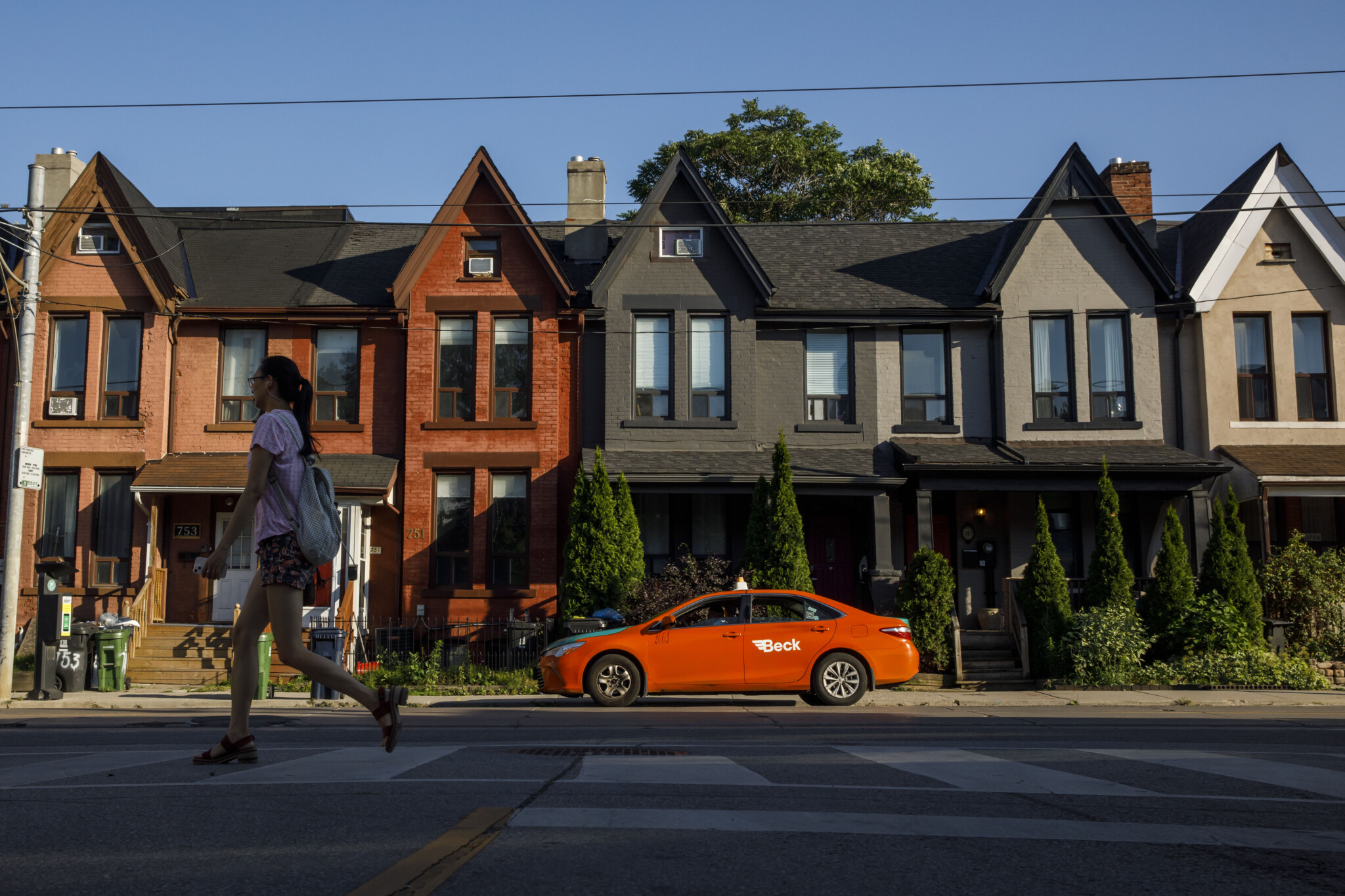
The Hub’s second annual Hunter Prize for Public Policy, generously supported by the Hunter Family Foundation, focused on solving Canada’s housing affordability crisis. A diverse group of ten finalists have been chosen from nearly 300 entries, with the finalists and winners chosen by an esteemed panel of judges, including Amanda Lang, Ben Rabidoux, and Mike Moffatt. The Hub is pleased to run essays from each finalist this week that lay out their plans to help solve this persistent policy problem.
For many Canadians, affording a place to live has become one of the biggest challenges they face today. Whether buying or renting a home, Canadians are grappling with mounting economic pressures, as both homeownership costs and rent have skyrocketed since the pandemic. Statistics from the third quarter of 2023 reveal that residents in Vancouver and Toronto need to spend 102.6 percent and 84.1 percent of their median income, respectively, to afford a home. Meanwhile, the rental market has become increasingly tighter, with the national vacancy rate dropping from 3.1 percent to 1.5 percent between 2021 and 2023.
We fully recognize that the current housing affordability crisis is a highly complex issue that demands a holistic, interdisciplinary approach with multiple solutions, rather than a one-size-fits-all fix. With this in mind, we chose to focus on a small yet crucial aspect: the rental markets in major Canadian cities. We propose an actionable and high-impact policy reform: implementing financial incentives to facilitate the conversion of existing single-family homes into multi-unit properties, also known as multiplexes.
In response to housing shortages, Canadian cities have traditionally adopted urban expansion strategies aligned with the belief that low-density single-family homes provide higher housing satisfaction than more compact options. Recently, criticism of large-scale low-density housing—due to higher infrastructure costs, limited land, and increased greenhouse gas emissions—has shifted focus toward high-density high-rise condominiums, now proliferating in urban centres. This trend has left a noticeable gap in medium-density housing, often referred to as the “missing middle.” Housing authorities across the country have recognized this issue and implemented various policy innovations, one of which is promoting the development of multiplexes in low-density residential areas.
In the context of housing, multiplexes refer to housing with multiple units in a single building. These homes may consist of rental or condominium units, and they can either be converted from existing houses or newly constructed. Cities have pledged to get more multiplexes built in the coming years. They aim to boost housing supply by slightly increasing lot density, offering more options for buyers and renters, and thus lowering prices. However, despite several Canadian cities implementing multiplex policies, progress remains limited compared to the scale of the housing shortage and affordability crisis. One notable factor contributing to the slow development of multiplexes in major Canadian cities is the absence of incentives within current policy designs.
Therefore, we propose an incentive program that encourages homeowners and developers to convert single-detached homes into multiplexes, thereby increasing rental housing availability in major Canadian cities. It consists of two components: 1) reductions of development-related charges; and 2) direct cash bonuses to homeowners for conversion and leasing and to renovation contractors for the number of conversion projects completed. The program’s geographical scope is limited to Canadian metropolitan areas with populations exceeding one million, including Toronto, Montreal, Vancouver, Calgary, Edmonton, and Ottawa-Gatineau.
The direct cash lump sum approach would incentivize homeowners and renovation contractors to initiate their conversion projects. Specifically, homeowners could earn up to $40,000 if they sign leases with renters that meet the following conditions: 1) the lease is valid for more than six months, 2) the monthly rent of one or multiple units exceeds $2,000, and 3) the conversion program complies with all regulatory requirements. Homeowners who rent out one unit will receive a $10,000 cash lump sum, which increases to $20,000 for two units, $30,000 for three units, and $40,000 for four units. Renovation contractors will also receive financial rewards upon completing a designated number of projects. Municipal governments would evaluate renovation contractors’ track records, ranking and selecting those who exceed a specified number of completed projects based on their performance.
The successful rental of added housing units serves as a prerequisite for qualifying for the rewards, as it closes loopholes that might allow conversion purely for rewards, and facilitates the creation of renter-friendly spaces. By setting a minimum rental lease length of six months for eligibility, the program encourages more mid- to long-term rentals rather than short-term options.
The proposed policy instrument could require significant funding. We estimate that approximately 1,000 homeowners meet all requirements, and the total cost of rewards would range from approximately $20 to $30 million for one city. However, the high upfront costs become significantly lower when spread out. The net spending for the program’s first year in a major Canadian city is expected to range from $5 million to $15 million, depending on the number of applicants and the complexity of projects. If successful, governments could benefit from positive externalities beyond tax revenues, potentially reducing the need for significant increases in housing budgets. Funding for the program will be split between federal, provincial, and municipal governments, with the federal government covering about 80 percent, as it gains the most from increased rental income tax revenues.
We also suggest that the policy should not be one-size-fits-all; it should be tailored to the diverse circumstances of different cities. Therefore, rather than launching the policy nationwide, it should first be piloted in one city and then refined before broader implementation. We will then partner with academic institutions to conduct further analysis and make necessary adjustments. With the refined proposal and its demonstrated effectiveness, we will present our ideas to key stakeholders. Subsequently, with the refined proposal and its demonstrated effectiveness, we will present our ideas to key stakeholders in the housing affordability crisis.
We anticipate numerous criticisms and challenges ahead. More attention is imperative for issues such as the distribution of funding and responsibilities, safety and privacy concerns, and the allocation of parking spaces. We also look forward to continued policy research and conversations. Our proposal serves as a starting point for exploring the potential of utilizing existing homes to accommodate Canada’s growing population. Policies disconnected from the larger housing strategy are ineffective, as are theoretical solutions that have yet to be tested. Instead, successful policies are interdisciplinary, evidence-based, and integrated with the existing landscape and regulatory frameworks.










